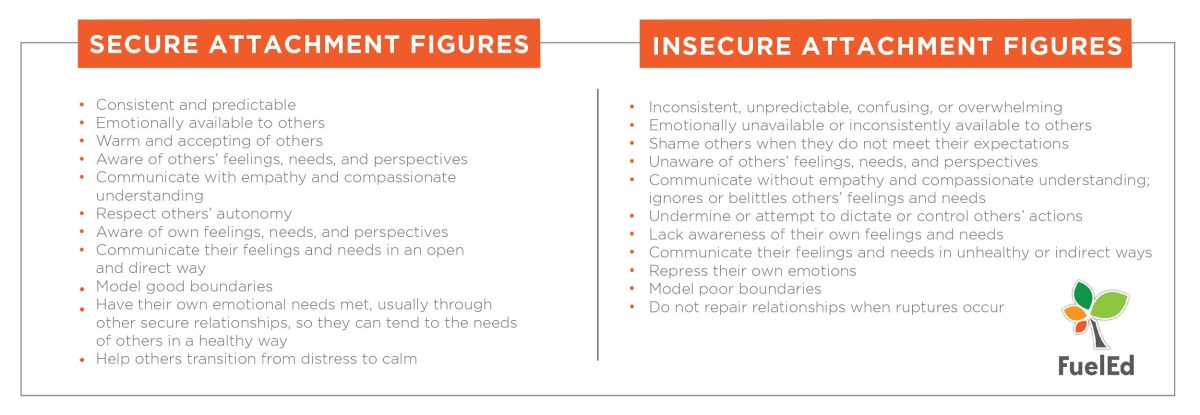Developing The Whole Educator To Develop The Whole Child

It’s been a turbulent few weeks for our country. Many of us had to navigate difficult conversations, differences of opinions, and complex feelings in ourselves, our colleagues, and our children. The tidal wave of emotion and angst from the election was perhaps felt most acutely in schools across the nation. In the words of one teacher: “Today was the worst day I’ve experienced as a teacher. Maybe ever. How can I possibly be there for my students, when I haven’t had the chance to process my own feelings? I have students who fear for their safety, who fear that their families will be deported. I am not a trained grief counselor, but that’s who I needed to be today.”
Where in their training did these teachers learn to manage their own emotions when triggered? To be aware of others’ feelings? To communicate with empathy? To effectively respond to the trauma that enters their classrooms? Unfortunately, with traditional educator preparation focusing predominantly on content knowledge and instructional skills, most teachers aren’t provided with the social-emotional development nor support to do any of this. While the tumult, divisiveness, and heightened emotions of the election may have shed light on the ways we ask educators to absorb student trauma, deal with challenging interpersonal situations, and manage their own and others’ emotion, this is representative of the reality that educators face every single day.
That is exactly why FuelEd was founded.
So how do we at FuelEd prepare educators for the social and emotional realities of their work? Do we train them to teach self-management, self-awareness, social awareness, relationship skills, and responsible decision-making to students through social-emotional learning curriculum and instruction? Do we “teach” teachers social-emotional skills so students can develop SEL through osmosis?
Not exactly. While there is an exciting and growing ecosystem of organizations that are building social and emotional learning into the fabric of our schools in these and other ways, neither of these are FuelEd’s approach. Namely because social and emotional capacities like “grit” or “empathy” are not learned like other cognitive skills. Unlike reading, writing, and arithmetic, social and emotional development occurs in early childhood and continues into adolescence and adulthood through the experience of secure relationships. In other words, social emotional learning happens through the early and ongoing care and nurture of a child. Or….it doesn’t, as is the case for so many children who experience toxic stress created by poverty, insecure relationships or other traumatic events.
Fortunately and amazingly, research has shown that a student’s secure relationship with an educator at any age can compensate for this, promoting higher academic achievement, greater social competence, and less behavioral problems.

The science of how relationships drive learning comprised much of my work as a researcher and collaborator on the book, The Social Neuroscience of Education by Dr. Louis Cozolino, and inspired me to start FuelEd. I saw that secure relationships may be the most powerful lever for districts, schools, and teachers to utilize in transforming academic and life outcomes for students. What this research tells us is that the best way to build social-emotional competence in children is by being the type of person who builds validating, safe relationships. The kinds of relationships that studies shows (quite literally) heal trauma, promote brain growth, and produce in optimal learning. This special “type of person” who builds secure relationships is called a “secure attachment figure.”

Can it be taught?
Some of it can be taught. For example, an adult’s ability to listen empathically (a skill included in customer service and sales training but not educator training!) is a foundational communication skill in building secure attachment and social emotional growth. When a teacher responds to a student’s distress with empathic understanding, utilizing “mirroring” statements that reflect the students’ needs, feelings, thoughts, or problems, this in turn…
- Helps the student self-soothe and self-regulate;
- Increases the students’ self-awareness of their own needs, feelings, thoughts and problems;
- Enables self-management and self-regulation (because empathy is calming it puts us in a better state-of-mind to solve our own problems); and
- Promotes right-left brain integration necessary for all learning processes including those needed for reading, writing, critical thinking, and problem-solving.
This example demonstrates how creating an education system focused on student social-emotional learning is not as simple as, “develop educator self-management, student self-management follows.” But instead, like lock and key, an educator’s emotional intelligence, emotional availability, and emotional capacity create moments of nurturance and care that catalyze a cascade of social emotional learning for students. This is why FuelEd has developed unique trainings like Empathy School that bring the art and science of effective listening to educators.
What else does it take?
There are other factors, besides relationship skills, that influence an educator’s ability to be a secure attachment figure and promote social emotional learning. After all, educators are not blank slates. Like their students, they too have a history of relationships, which shape their thoughts, feelings, and behavior. In fact, studies have shown that adults differ in their ability to develop secure relationships based on their own attachment style, which is built by their early relationships with parents or caregivers. Educators who personally experienced secure attachments as children are more likely to have a “secure attachment style” and therefore build secure relationships with students. Alternatively, those who experienced early insecure relationships are more likely to have an “insecure attachment style” and therefore build insecure relationships with students. It seems if we want more secure students….we need more secure educators.